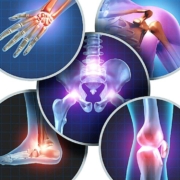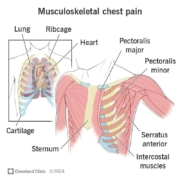Rheumatoid Arthritis: Living Well with a Chronic Condition
Rheumatoid arthritis (RA) is a chronic inflammatory disease that primarily affects the joints. Understanding RA and how to manage it is crucial for your musculoskeletal health. Left untreated, RA can cause significant pain, joint damage, and even disability. This article will explore what RA is, how it impacts your body, and, importantly, how you can live well despite this chronic condition.
Understanding Rheumatoid Arthritis
RA is an autoimmune disease, meaning your immune system mistakenly attacks healthy tissues in your body, specifically the lining of your joints (synovium). This attack causes inflammation, pain, swelling, stiffness, and eventually, joint damage. While RA primarily affects joints, it can also impact other organs like the lungs, heart, and eyes.
Preventing RA: What We Know and What We Can Do
While there’s no guaranteed way to prevent RA, research suggests certain lifestyle choices may reduce your risk or lessen its severity. Focusing on these areas can contribute to overall better health, even if you already have RA.
Maintain a Healthy Weight: Being overweight or obese puts extra stress on your joints, increasing inflammation. Reaching and maintaining a healthy weight can significantly improve joint health and overall well-being.
Eat a Balanced Diet: A diet rich in fruits, vegetables, and whole grains can help reduce inflammation. Consider incorporating foods with anti-inflammatory properties, such as fatty fish (salmon, tuna), leafy greens, and berries. Limit processed foods, sugary drinks, and red meat, which can contribute to inflammation.
Don’t Smoke: Smoking is a significant risk factor for developing RA and can worsen symptoms for those who already have it. Quitting smoking is one of the best things you can do for your overall health, including your joints.
Exercise Regularly: Regular physical activity is essential for maintaining joint flexibility, strength, and range of motion. Low-impact exercises like walking, swimming, and cycling are particularly beneficial for people with RA. Talk to your doctor or physical therapist about developing an exercise plan that’s right for you.
Living Well with RA: Managing Your Condition
If you have RA, focusing on managing your condition is key to living a full and active life. Here are some important strategies:
Medication Management: Work closely with your rheumatologist to find the right medications to manage your symptoms and slow the progression of the disease. These may include disease-modifying antirheumatic drugs (DMARDs), biologics, and pain relievers.
Physical Therapy: A physical therapist can teach you exercises to improve joint flexibility, strength, and range of motion. They can also help you develop strategies to protect your joints during daily activities.
Occupational Therapy: An occupational therapist can help you adapt your home and work environments to make everyday tasks easier. They can also provide assistive devices to help you maintain your independence.
Stress Management: Stress can worsen RA symptoms. Finding healthy ways to manage stress, such as meditation, yoga, or deep breathing exercises, can be beneficial.
Support Systems: Connecting with others who understand what you’re going through can provide valuable emotional support. Consider joining a support group or connecting with other people with RA online.
Staying Informed and Proactive
Staying informed about your condition and working closely with your healthcare team are crucial for managing RA effectively. Don’t hesitate to ask questions and advocate for your needs.
Key Takeaways:
RA is a chronic inflammatory disease that primarily affects the joints.
While there’s no guaranteed prevention, healthy lifestyle choices can reduce your risk and improve overall health.
Managing RA involves medication, physical and occupational therapy, stress management, and building a strong support system.
Additional Resources:
The Arthritis Foundation: www.arthritis.org
The American College of Rheumatology: www.rheumatology.org
By taking an active role in your healthcare and adopting healthy lifestyle habits, you can live a full and active life with rheumatoid arthritis. Remember, you are not alone, and there are resources and support available to help you navigate this journey.









